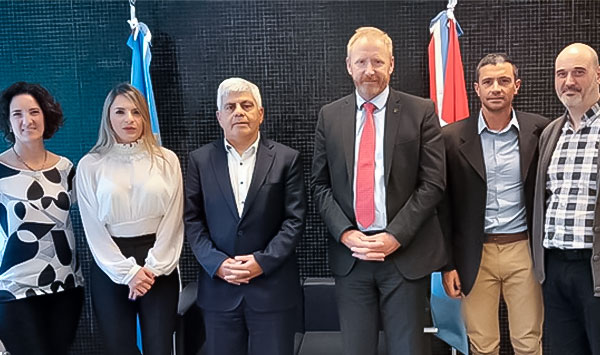
The technical roundtables were led by the Public Prosecutor’s Office, represented by the Attorney General of the Province of Santa Fe, Dr. Jorge Baclini, with the support of criminal investigation experts Kevin Mills (United Kingdom) and Daniela Suárez (Colombia), both consultants at Gordon Thomas Honeywell. Representatives of key institutions participated in the meetings, such as the Mayor of the city of Rosario, Pablo Javkin; the dean of the Faculty of Law of the National University of Rosario, Hernán Bota; and the heads of forensic investigation laboratories, accompanied by the directors of criminal investigation of the Public Prosecutor’s Office.
The first objective of this Memorandum of Understanding is to support the “Justicia Forense – DNA Latin America” campaign in the province of Santa Fe for the establishment and/or strengthening of the scientific and legal frameworks for the regulation and administration of a forensic DNA database for criminal investigation purposes.
The agreements also include the provision of scientific and legal advice, technical training and all expertise related to the analysis of genetic fingerprinting for the establishment of DNA databases for criminal investigation purposes. To open the public debate, an international seminar will be held with academic experts, representatives of key institutions, strategic allies and civil society.
The purpose will be to inform participants of the scope, importance and strategy to follow to implement the establishment of a DNA database for criminal investigation purposes, and at the same time to make legal experts and criminologists available to promote the bill for a National Criminal DNA Database System.










 EL SALVADOR
EL SALVADOR HONDURAS
HONDURAS

 BOLIVIA
BOLIVIA PERÚ
PERÚ